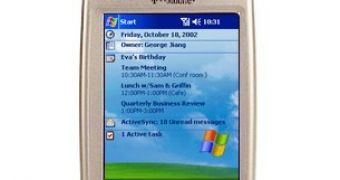After being sued by Apple for allegedly infringing on 20 patents related to the iPhone’s user interface, underlying architecture and hardware, HTC disagrees with said legal actions, the company has announced in a report. The Taiwan-based vendor of smartphones has also reiterated its commitment to creating a portfolio of innovative handsets that, according to the company, "gives consumers a variety of choices."
"HTC disagrees with Apple's actions and will fully defend itself. HTC strongly advocates intellectual property protection and will continue to respect other innovators and their technologies as we have always done, but we will continue to embrace competition through our own innovation as a healthy way for consumers to get the best mobile experience possible," Peter Chou, chief executive officer, HTC Corporation, said.
"From day one, HTC has focused on creating cutting-edge innovations that deliver unique value for people looking for a smartphone. In 1999 we started designing the XDA(i) and T-Mobile Pocket PC Phone Edition(ii), our first touch-screen smartphones, and they both shipped in 2002 with more than 50 additional HTC smartphone models shipping since then."
The report goes to mention that HTC’s contributions have been recognized by the industry through a variety of awards (and proceeds with enumerating them), outlining that the GSMA recently awarded the HTC Hero the title of the "Best Phone of 2009." To further defend itself, HTC mentions what it calls "technology firsts," which the smartphone maker attributes to itself. According to the report, those include:
- First Windows PDA (1998); - First Windows Phone (June 2002); - First 3G CDMA EVDO smartphone (October 2005); - First gesture-based smartphone (June 2007); - First Google Android smartphone (October 2008); - First 4G WIMAX smartphone (November 2008).
"HTC has always taken a partnership-oriented, collaborative approach to business. This has led to long-standing strategic partnerships with the top software, Internet and wireless technology companies in the industry as well as the top U.S., European and Asian mobile operators," Jason Mackenzie, vice president of HTC America, explained. "It is through these relationships that we have been able to deliver the world's most diverse series of smartphones to an even more diverse group of people around the world, recognizing that customers have very different needs," Mackenzie concluded.

 14 DAY TRIAL //
14 DAY TRIAL //